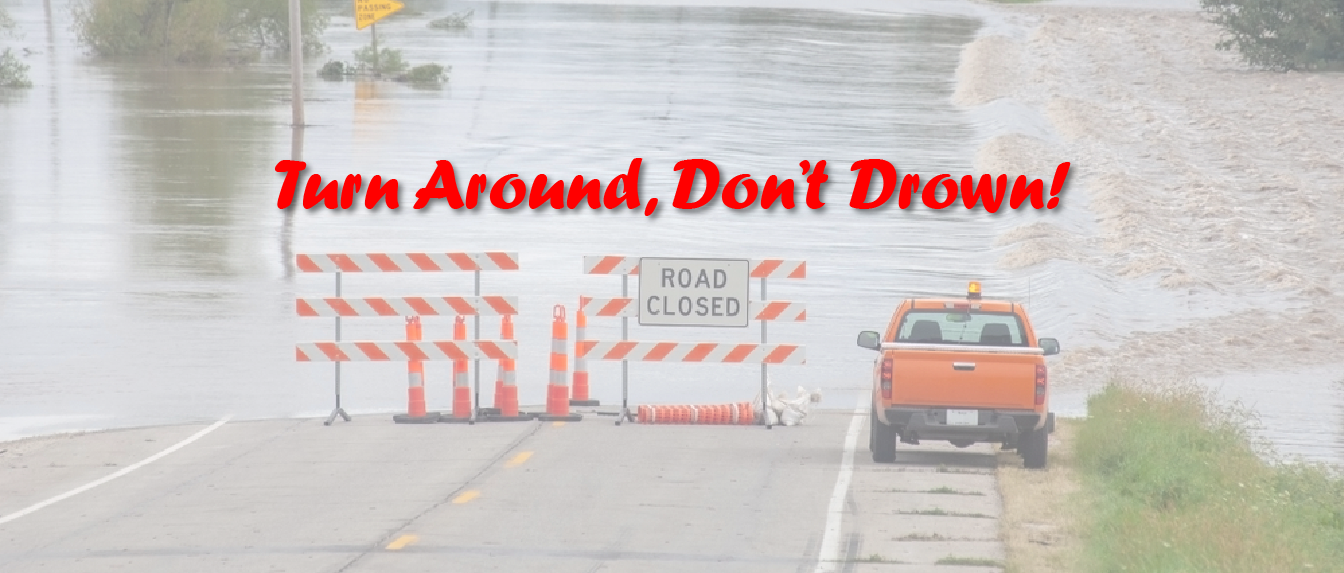Flood Safety

Knowing what to do before, during, and after a flood can greatly increase your chances of survival and help you better protect your property. The following information was gathered from the National Weather Service and the Red Cross and will help you accumulate knowledge and tips to get prepared, should you find yourself in a flooding emergency.
The Four Types of Warnings and Watches
Flood/Flash Flood Warning = Take Action!
This is issued when a flood or flash flood is already occurring or will soon. Immediately move to high ground if you are in a flood prone area. A flash flood is a sudden violent flood that can take anywhere from minutes to hours to develop. Even if you are not immediately seeing rain, you can still experience a flash flood.
Flood/Flash Flood Watch = Be Prepared
This is issued when conditions are favorable for flooding. It does not guarantee that flooding will occur, but it is possible.
Flood Advisory = Be Aware
Before Flooding

During Flooding
It’s important to know that during a flood, the level of the water and the rate at which it’s flowing can change rapidly. Stay aware, monitor local news outlets, and avoid flood waters. When water starts to rise, immediately evacuate. Never wait around.
After Flooding
When flood waters abate, the damage left can not only be devastating, but dangerous as well. It's crucial to keep in mind that flood waters can often become contaminated with sewage or chemicals.
Resources:
